In the shadow of the Federal Building and the city’s recognizable red flamingo sculpture, Emily Lopez teared up in front of a crowd of rallying men and women vying for legal access to abortion and birth control nationally. Lopez detailed her and her husband’s decision to terminate her pregnancy after learning their child would assuredly die shortly after birth.
“You got this,” screamed attendees when the voice of the mother of two began to give out.
Held in Federal Plaza on the evening of May 20, the rally brought together over 1,000 pro-choice Chicagoans to listen to city organizers, lawmakers, doctors, and students who spoke. Advocates chanted and waived brightly colored signs, riddled with puns and plays that called out lawmakers against their cause.
“We need to talk about the elephant in the womb,” read one attacking the GOP’s reigning mascot.
Marj Halperin, an executive committee member of the organizing grassroots group, Indivisible Chicago, said the rally and its national counterparts should bring about a bout of action.
“We are going out in full force today to demonstrate the will of the people,” said Halperin. “Women’s choice should not take a backseat on any progressive agenda or any agenda.”
Halperin, Indivisible Chicago, and the rally’s nine other organizing groups support the Illinois’ Reproductive Health Act, or RHA, which sits untouched in the state house since March 29. The bill would update the state’s 40 year-old abortion laws and ensure the protection of women’s reproductive health care in the state. Pushing the RHA forward stood as one of the evening’s key goals.
Inaction around the bill prompted the rally’s classification as an “emergency.” Because of the bill’s stagnation, Halperin said organizers chose to throw the rally together quickly at the plaza, which does not have any permit requirements.
The fight for the RHA follows eight states’ actions to restrict abortion in the slow and steady movement to overturn the 1973 Supreme Court case, Roe v. Wade, that safeguards the procedure.
On May 17, Alabama governor Kay Ivey signed a bill effectively banning abortion regardless of cause. Her action trailed Indiana’s near-total ban in April, as well as similar legislation in Georgia, Ohio, Louisiana, Missouri, and a slate of other states. The impending closure of last abortion clinic in St. Louis, Missouri, which held strong against the opposition until now, offers a glimpse into life before the procedure was legalized.
17-year-old Alix Burkhardt stood proudly next to her mother as one of the rally’s first arrivals and said the recent laws trammel more than the procedure itself.
“It’s not about abortion…it’s about controlling women,” said Burkhardt. “We are so young and this is going to be affecting us for the rest of our lives.”
Speakers and singers stood in front of a lined ambush of women dressed in handmaid’s outfits––oversized white bonnets and draping scarlet cloaks. Heads bowed and hands tucked, the costumed women stood in silence facing the cheers for the rally’s entirety.
The outfit choice became popular following the TV adaptation of Margaret Atwood’s 1985 novel, The Handmaid’s Tale. Starkly in contrast to others’ streetwear, the costume has come to symbolize a conglomeration of women’s issues around the globe.
Patty Flaherty, donned head to toe in scarlet and white, said the outfit reminds everyone the past may mirror the future.
“This is what we are going back to,” said Flaherty dimly after remembering her own daughter. “It’s totally in-line to what could become again.”
Throughout the hour, emcee and Women’s March Chicago president Jaquie Algee introduced speakers in a fit of laughter and passion. Among other speakers, Cook County commissioner Donna Miller took the podium to explain how birth control helped her fertility and chronic endometriosis. And Nicole Lopez of the Midwest Access Coalition described the non-profit’s work transporting women who need abortion care other states have limited.
But Algee brought the rally to a close by hailing empowered attendees to march down Dearborn Street. Handmaids led the congregation through a cleared street where not one advocate was without a sign and a scream. The Chicago Police Department surrounded the march to guarantee protesters’ safety.
A number of attendees found their way to Federal Plaza through the event’s facebook invite, which gartnered over 1.7 “going” responses. Its success speaks to the growing role of social media in modern activism.
Beyond internet likes and reactions, organizers and attendees spur people, young and old, to vote on reproductive rights issues.
“There’s so many people who don’t pay attention and really aren’t aware of the fact that there are decisions being made right now,” said Burkhardt. “We have to make sure we don’t go back.”

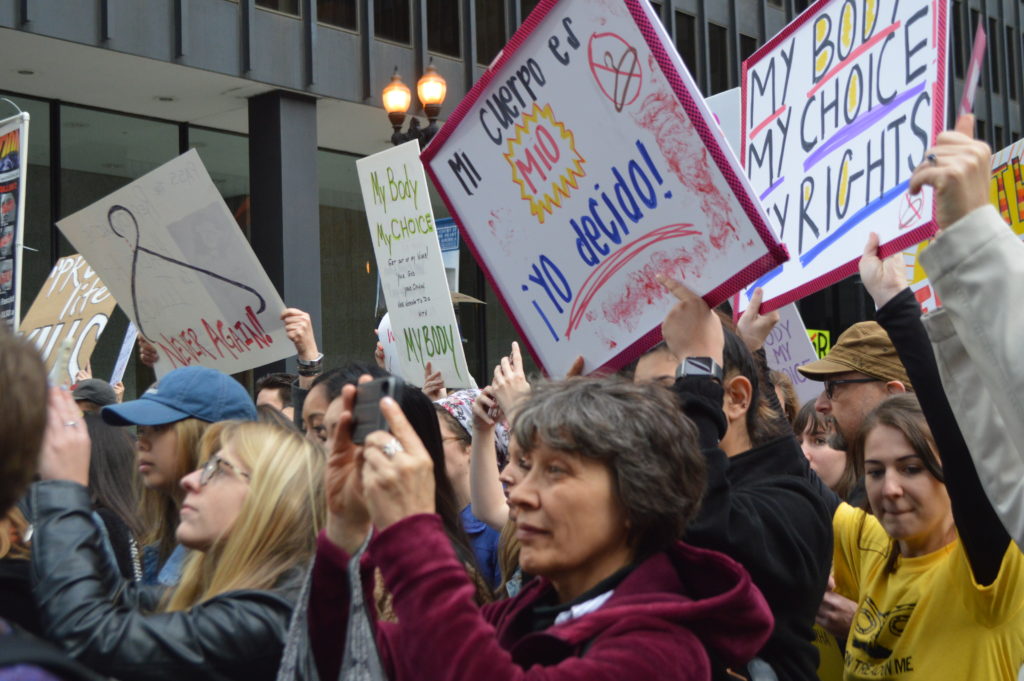
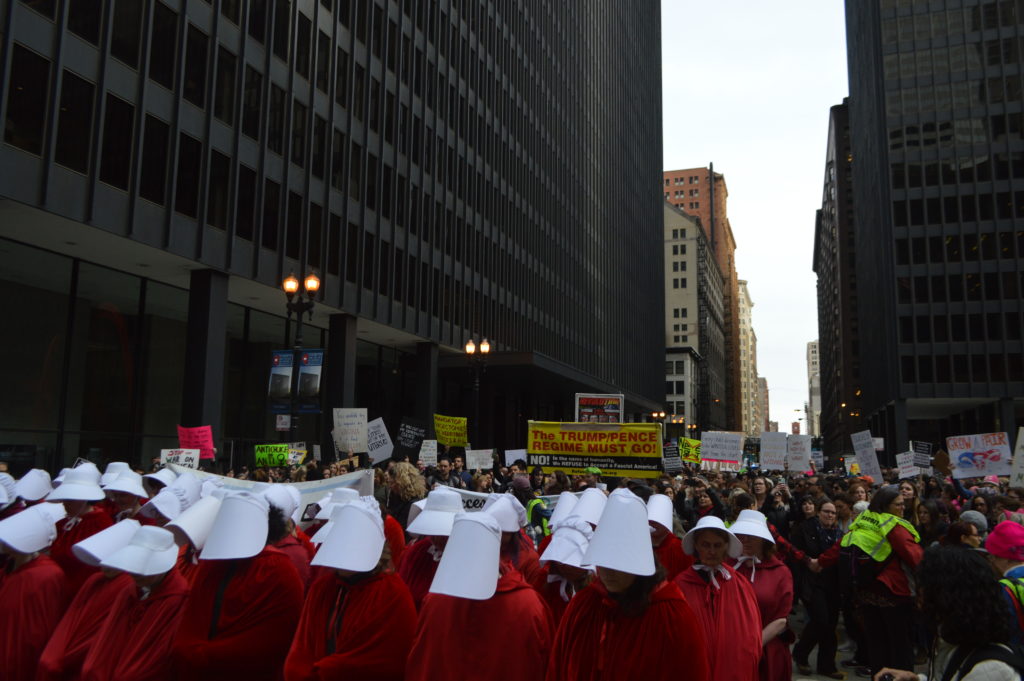
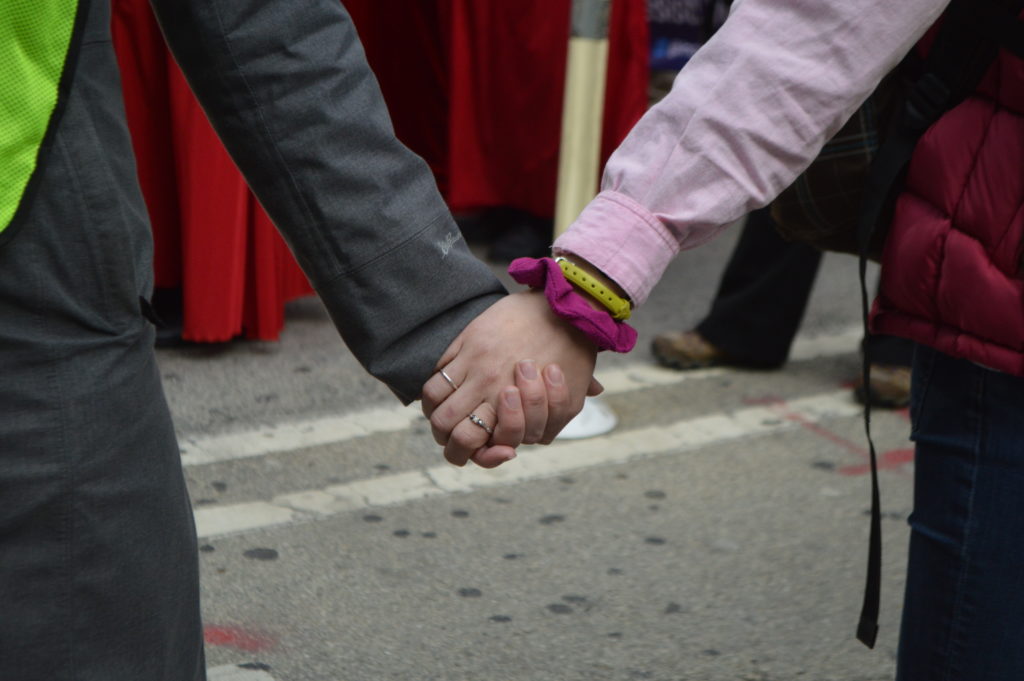
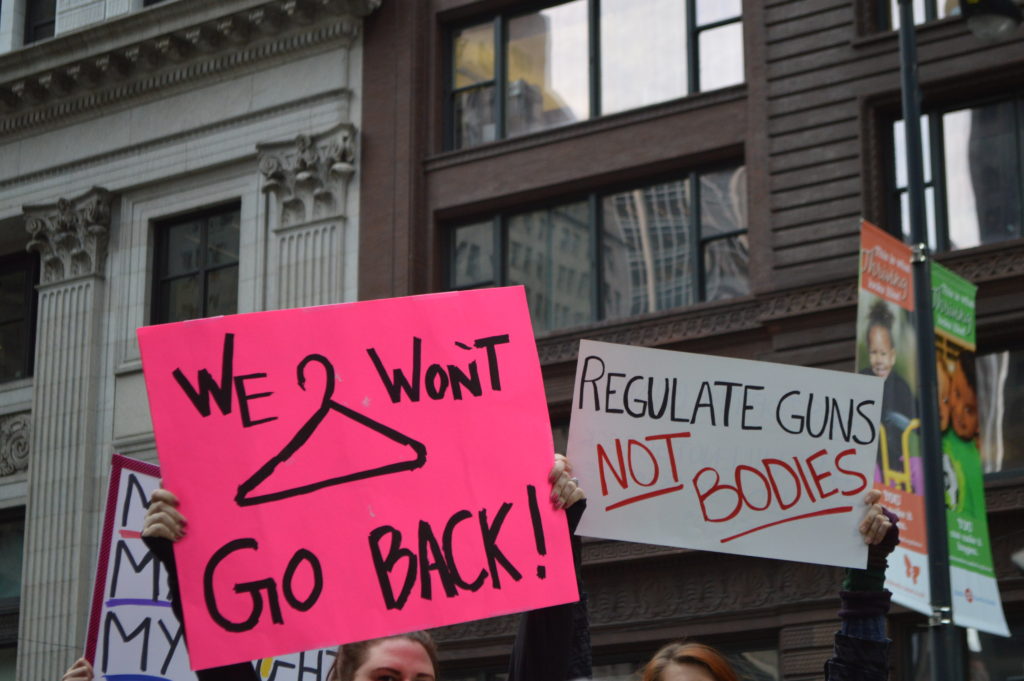
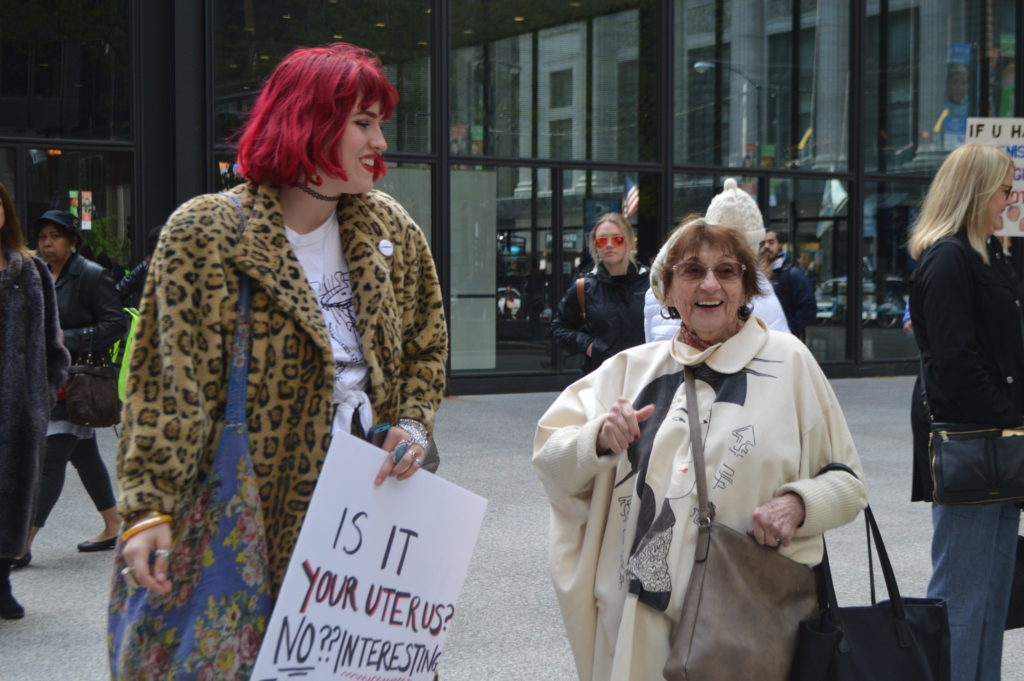
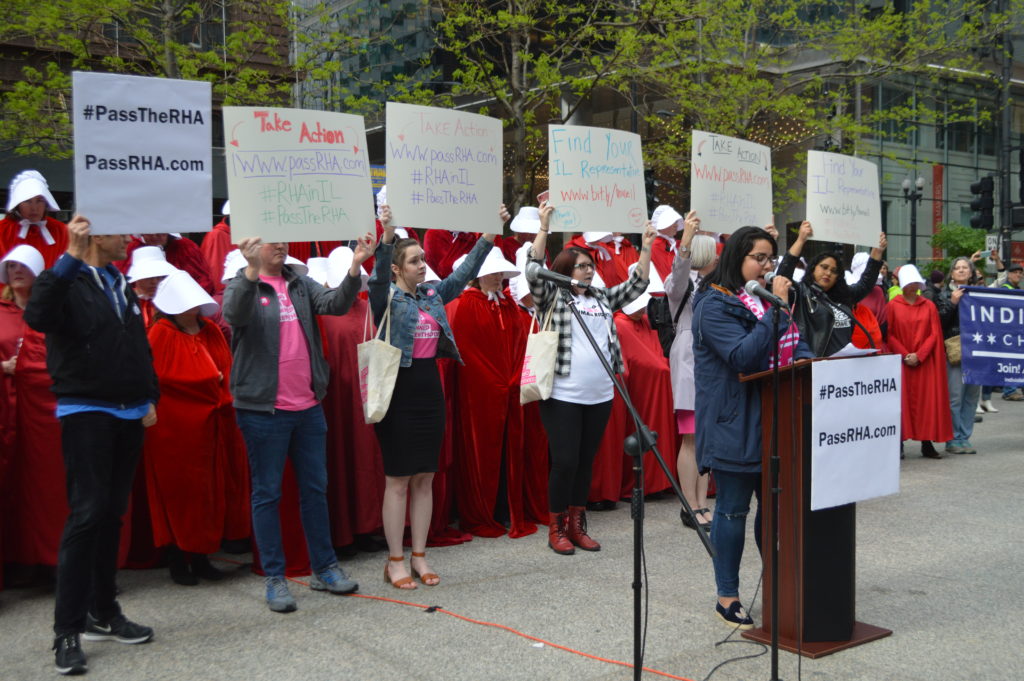
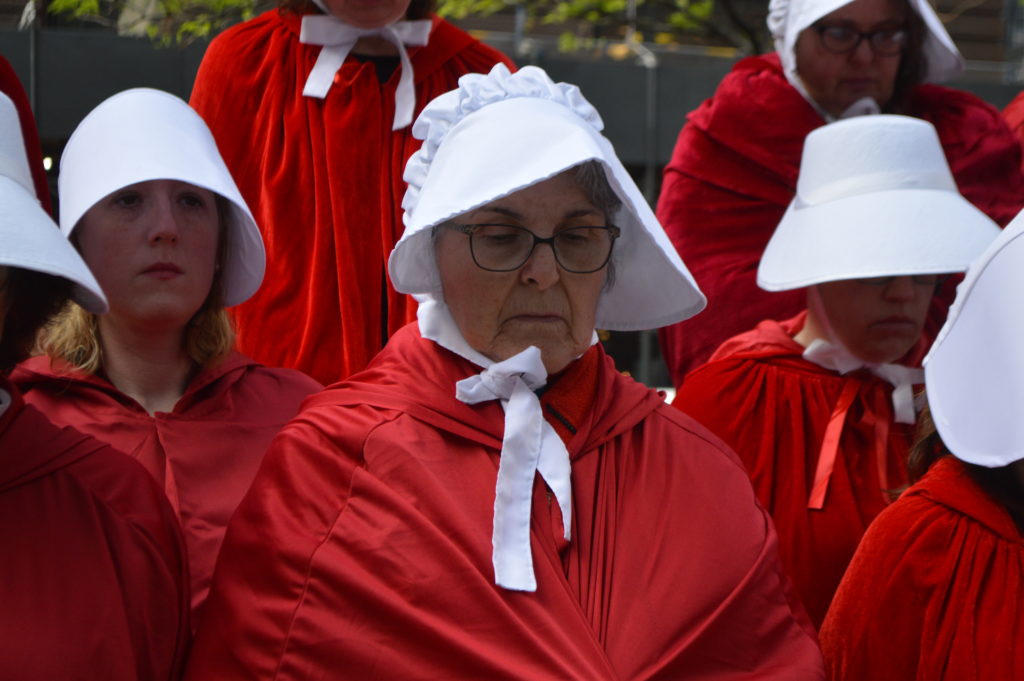
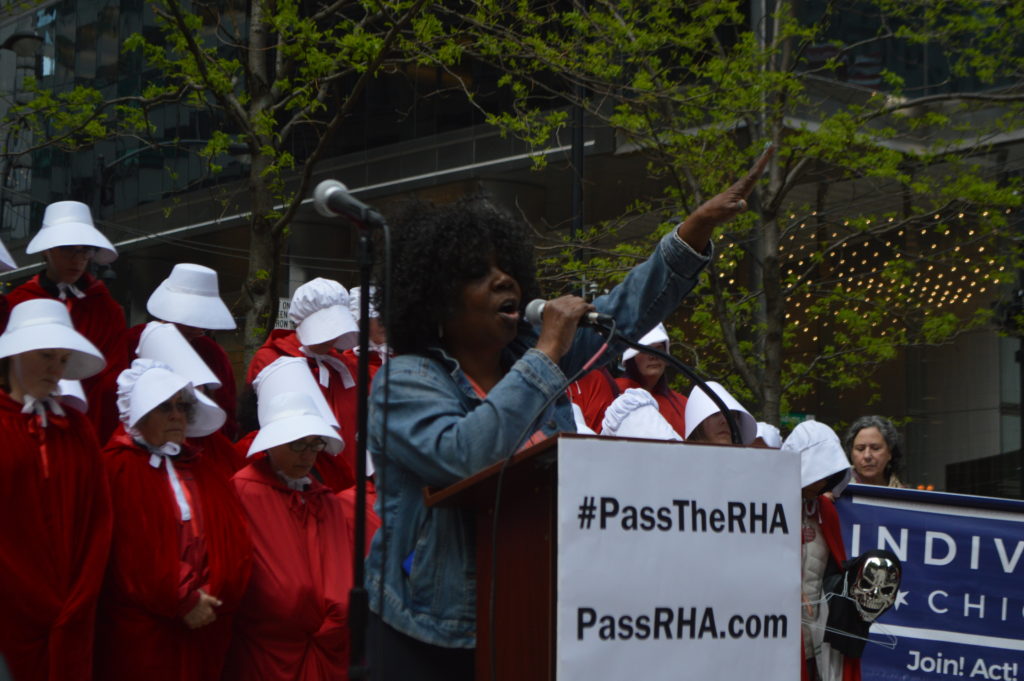
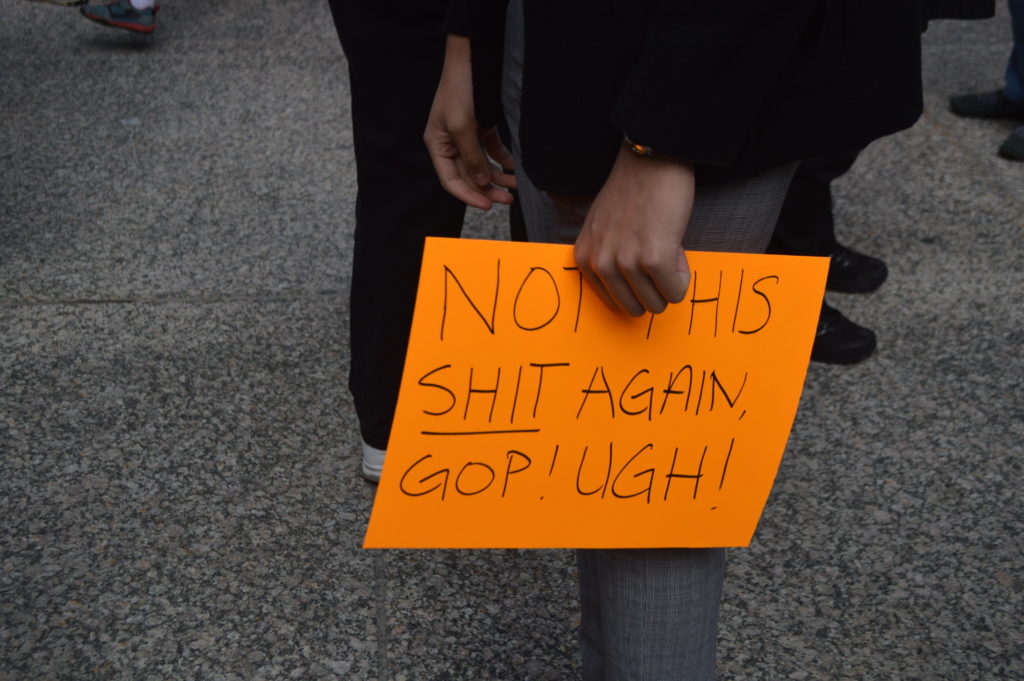

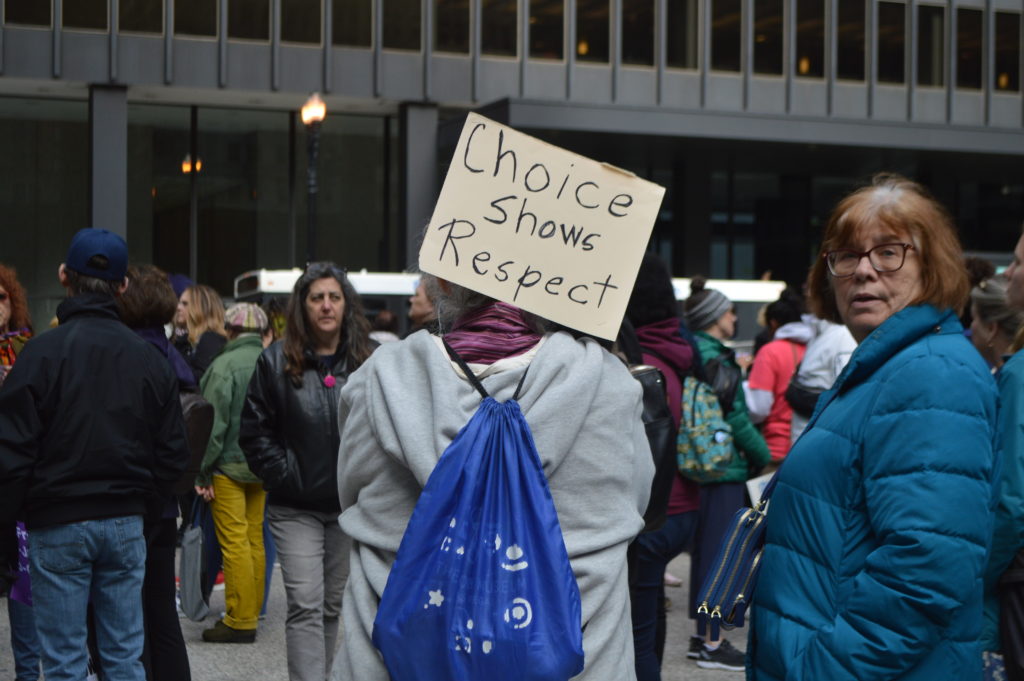
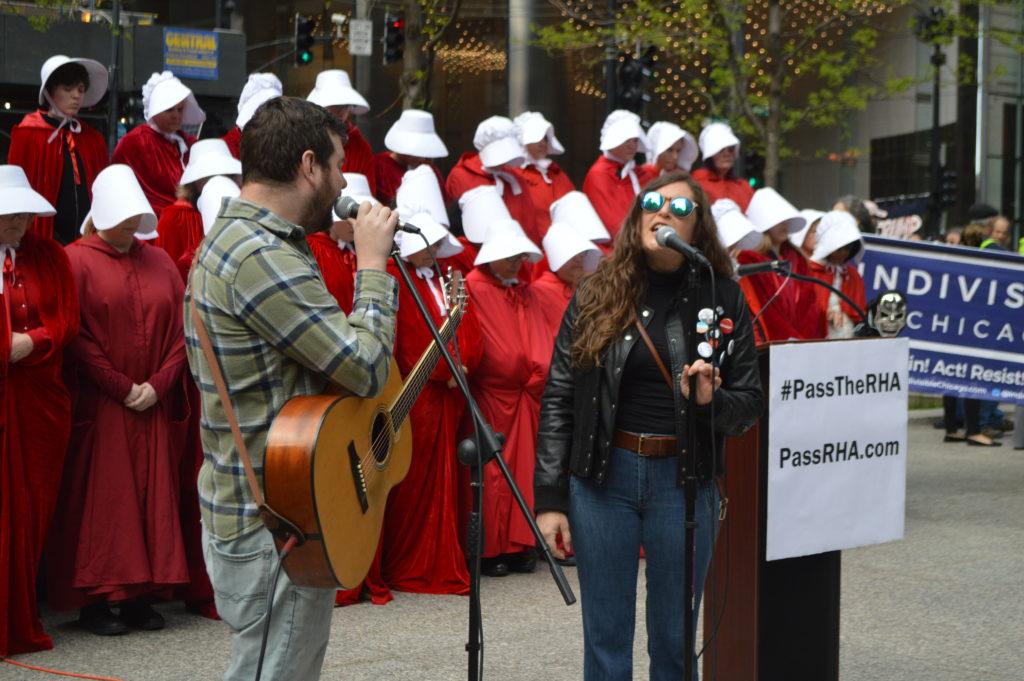
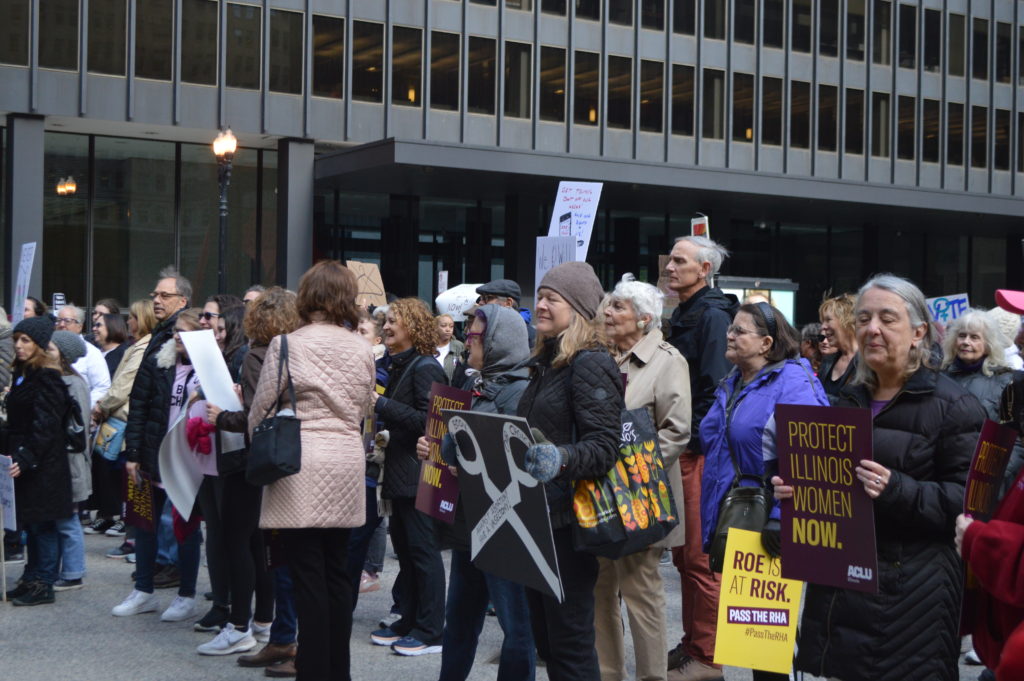
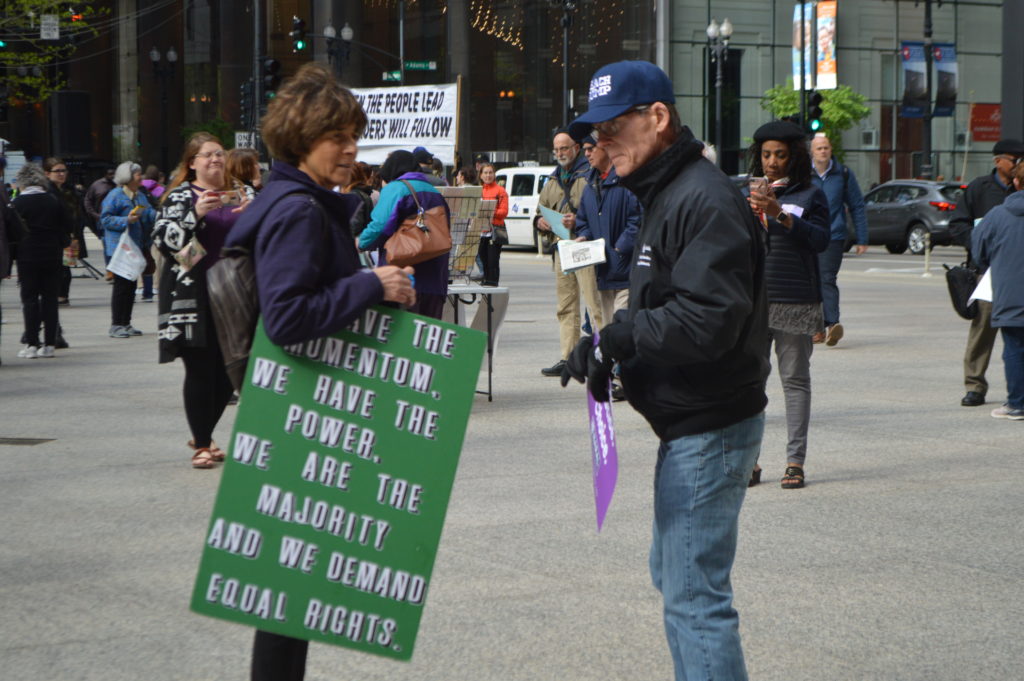
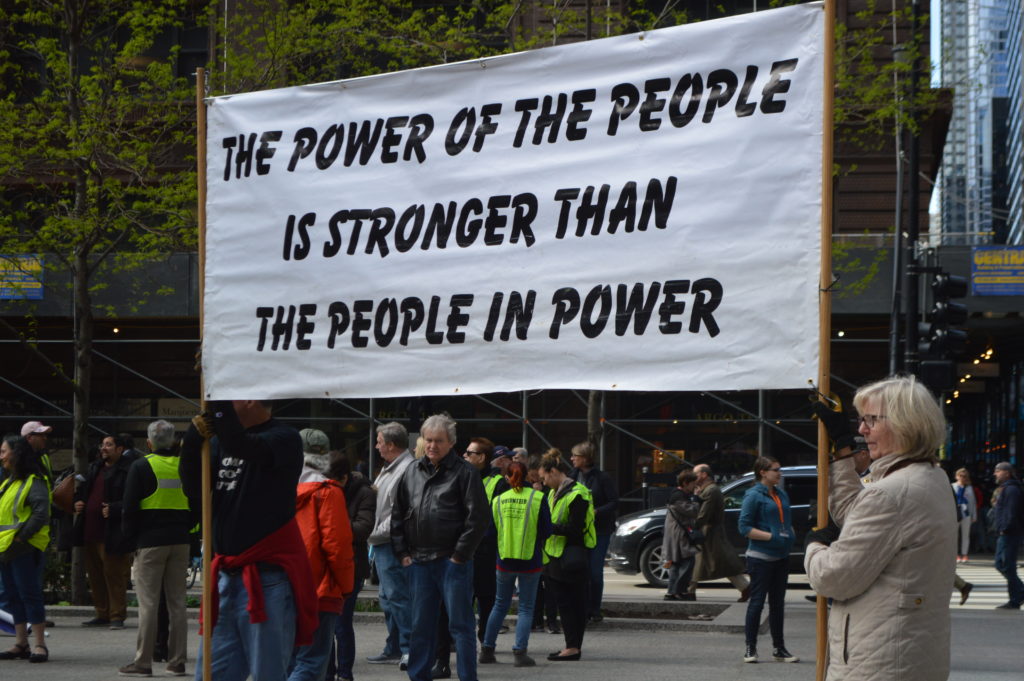
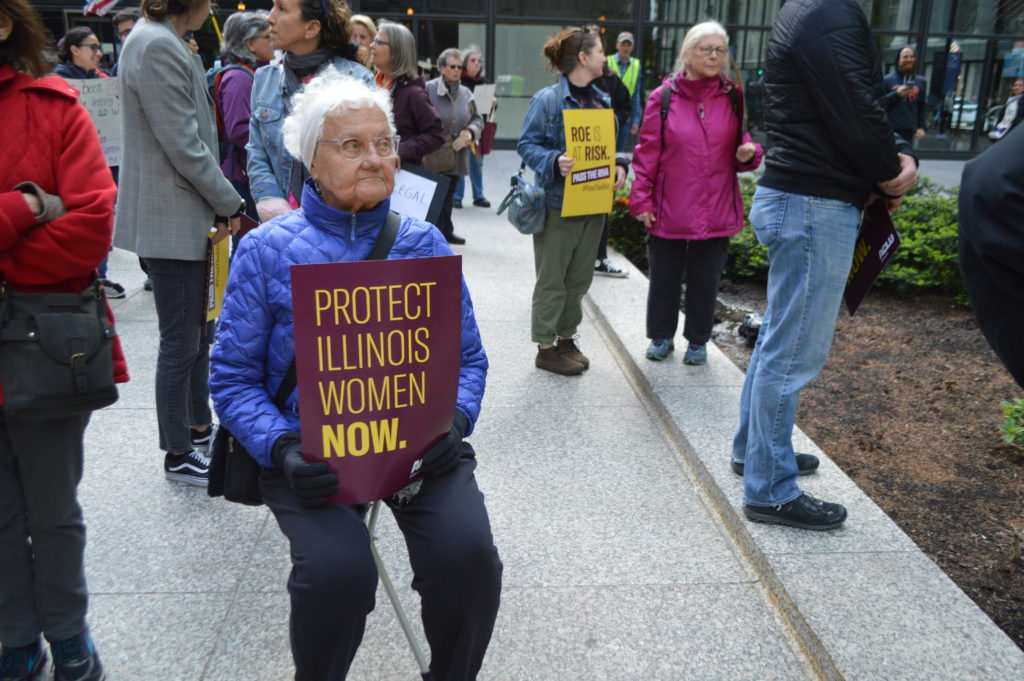
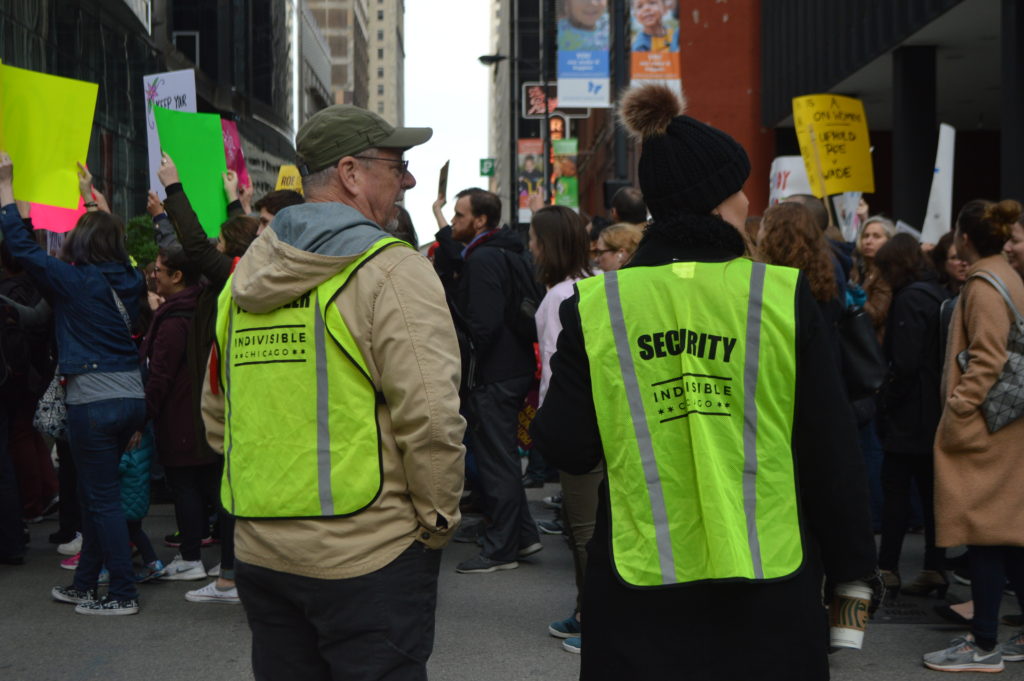
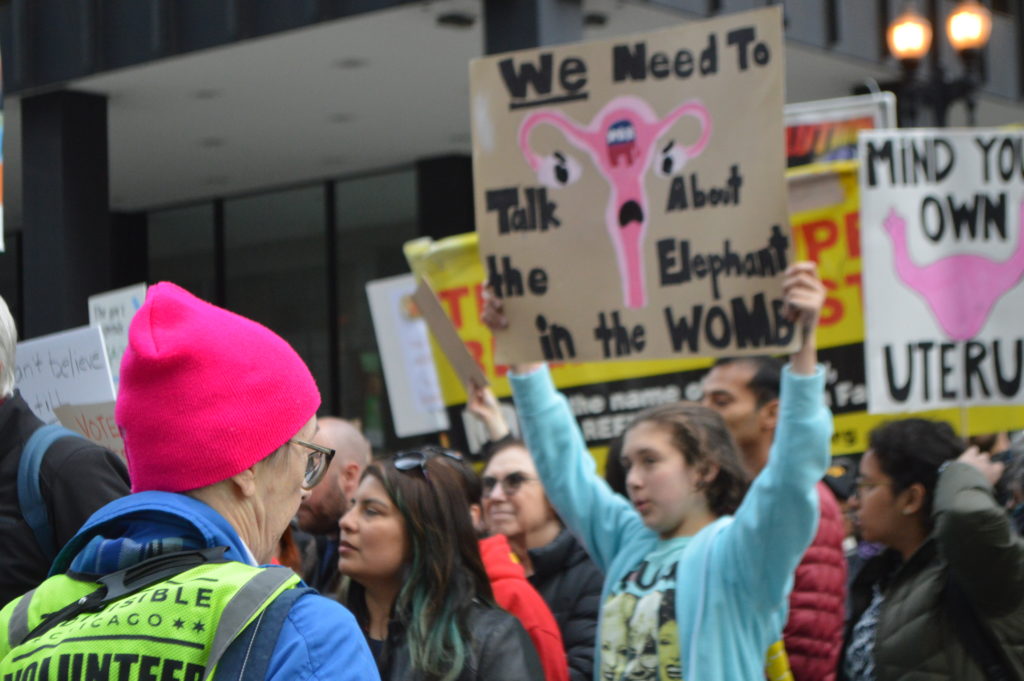





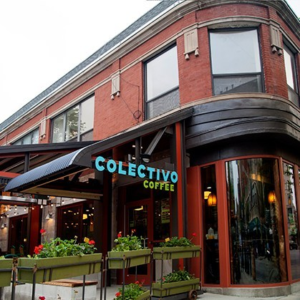
Be First to Comment